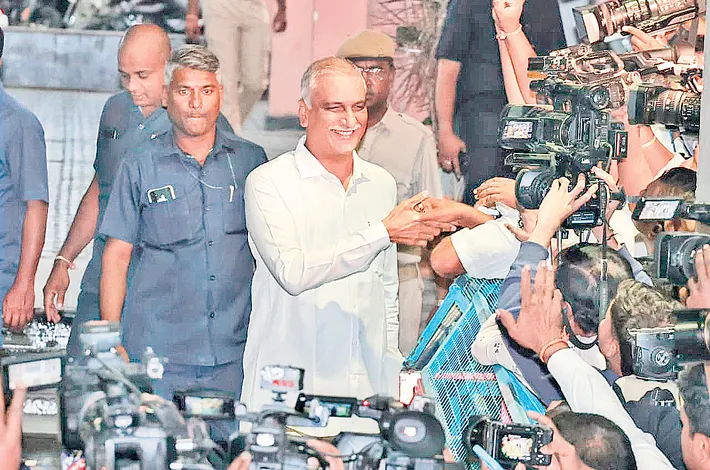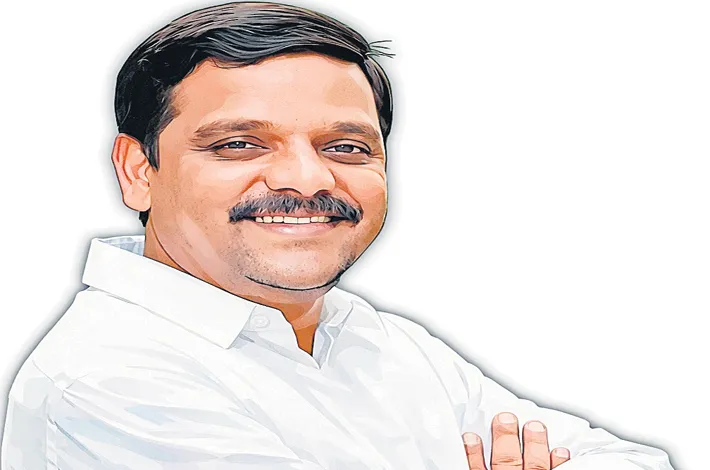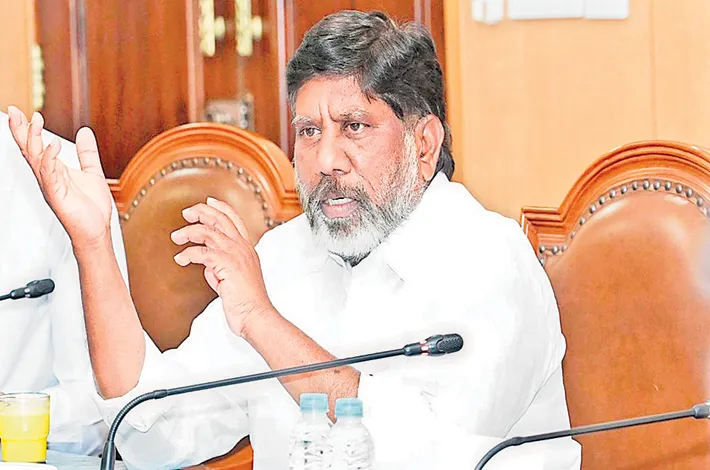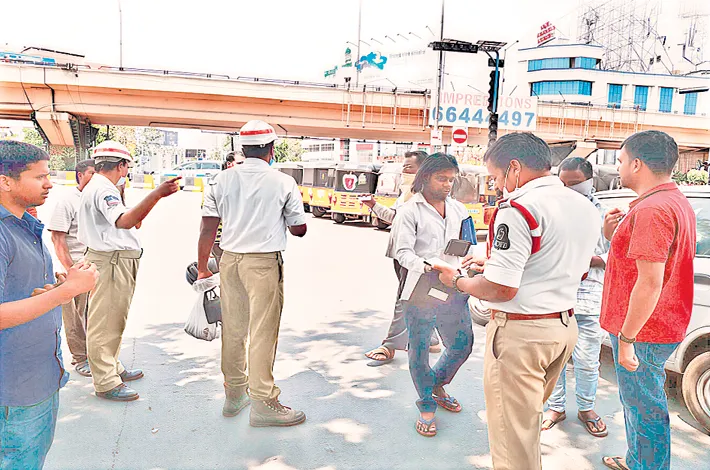The Trackside Heroes of Satna
29-10-2025 12:00:00 AM
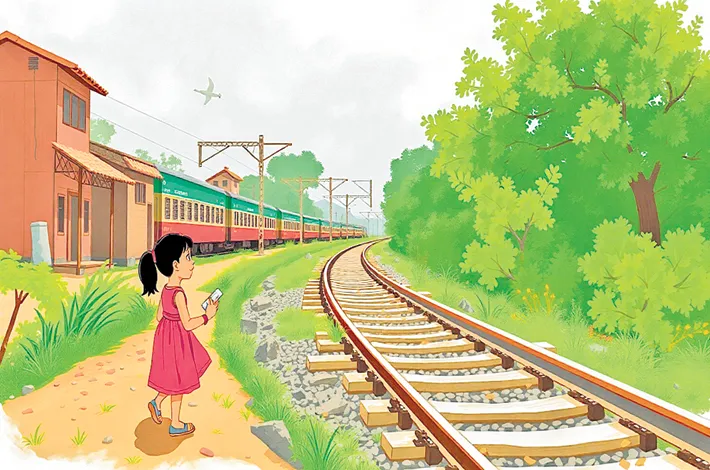
In the bustling town of Satna, nestled in the heart of Madhya Pradesh, ten-year-old Maya lived in a small house near the railway tracks. The trains were her daily symphony—whistling in the morning, rumbling at noon, and chugging softly under the starlit sky. Maya loved watching them from her window, imagining the far-off places they carried people to. Her best friends, Arjun, Priya, and little Sameer, shared her fascination. Together, they called themselves the "Trackside Troupe," always on the lookout for adventures near the railway.
One sunny afternoon, the Troupe gathered at their favorite spot—a grassy knoll overlooking the tracks, where they could see trains snake through the lush fields. They were playing their usual game of "Guess the Train," trying to name the locomotives by their horns, when Sameer, who was always curious, wandered closer to the tracks. He kicked at pebbles, humming to himself, until he froze. "Maya! Arjun! Priya! Come quick!" he shouted, his voice sharp with excitement.
The others rushed over, thinking he’d found a shiny stone or a stray coin. Instead, Sameer pointed at the railway track. There, glinting in the sunlight, was a deep crack running across one of the steel rails. It wasn’t wide, but it looked dangerous, like a wound in the iron spine of the railway. Maya’s heart sank. She’d heard stories of train accidents caused by damaged tracks, and the thought of a train derailing in their town made her stomach twist.
"We have to tell someone!" Priya said, her eyes wide. Arjun nodded, but his face clouded with worry. "The next train is the Satna Express. It’s due in less than an hour. If it hits this crack…" He didn’t finish the sentence, but they all knew what he meant.
Maya took charge. "We need to warn the train driver. But how? The station is too far to run in time." The Satna railway station was a good two kilometers away, and the children knew they couldn’t get there and back before the train arrived. Sameer tugged at Maya’s sleeve. "What about the signal post? My uncle says drivers check those for warnings!"
The signal post was closer, about half a kilometer down the tracks, where a red-and-white pole stood to guide trains. The Troupe had seen railway workers use flags to signal drivers, but they had no flags, and none of them knew the official signals. Still, Maya’s mind raced. "We’ll make our own signal," she declared. "Something the driver can’t miss."
The children sprang into action. Priya, who always carried a small backpack, pulled out her red dupatta, a gift from her grandmother. "This is bright! We can wave it!" Arjun, the fastest runner, offered to sprint to the signal post with the dupatta. Maya and Sameer searched the knoll for anything else to make their signal stand out. They found a broken branch and some wildflowers, which they tied to the dupatta to make it bigger and more noticeable. Meanwhile, Priya tore a page from her notebook and scribbled a warning: "CRACK IN TRACK! STOP TRAIN!" in big, bold letters with her pencil.
With their makeshift signal ready, the Troupe hurried to the signal post. The tracks shimmered in the heat, and the distant hum of the Satna Express grew louder. Arjun climbed onto a small mound near the post, waving the red dupatta like a flag, the flowers and branch bouncing wildly. Maya and Priya stood beside him, holding up the sign, while Sameer jumped and shouted, "Stop! Stop!" at the top of his lungs.
The train’s whistle blared, closer now, and for a moment, Maya feared the driver wouldn’t see them. Her heart pounded as the locomotive’s black nose came into view, puffing smoke. But then, a miracle—the train’s brakes screeched, a high-pitched wail that echoed across the fields. The Satna Express slowed, then stopped, just a hundred meters from the cracked track.
The driver, a burly man with a kind face, leaned out of the engine. "What’s going on, kids?" he called, his voice gruff but concerned. Maya stepped forward, holding up the sign. "There’s a crack in the track, sir! Right there!" She pointed to the spot they’d found.
The driver climbed down, followed by a guard, and the children led them to the crack. The driver’s eyes widened when he saw it. "Good grief," he muttered. "This could’ve been a disaster." He radioed the station, reporting the damage, and soon, a team of railway workers arrived to inspect the track. The Troupe watched as the workers marked the area with cones and began repairs, their tools clanging in the afternoon heat.
The driver turned to the children, his stern face softening. "You kids saved a lot of lives today. How did you know to signal us?"
Maya explained their plan, blushing as the guard ruffled Sameer’s hair and praised their quick thinking. The driver reached into his pocket and pulled out four shiny railway badges, usually given to workers for good service. "These are for you," he said, pinning one on each child’s shirt. "You’re honorary railway heroes now."
Word of the Trackside Troupe’s bravery spread through Satna like wildfire. By evening, their families were at the station, beaming with pride. The station master invited them for tea and biscuits, and the local newspaper even sent a reporter to write about the "Children Who Stopped the Train." Maya, Arjun, Priya, and Sameer tried to act modest, but their grins gave them away.
That night, as Maya lay in bed, the familiar rumble of a train passed by, slower this time, on a repaired track. She clutched her railway badge, feeling like a true hero. The Trackside Troupe had proven that even kids could make a difference, and Satna would never forget their adventure by the tracks.
The next day, the Troupe met at their knoll, already planning their next adventure. "Maybe we’ll find a treasure on the tracks!" Sameer said, his eyes sparkling. Maya laughed. "As long as it’s not another crack." And with that, the children ran off into the fields, their laughter mingling with the distant whistle of a train, ready for whatever Satna had in store.





